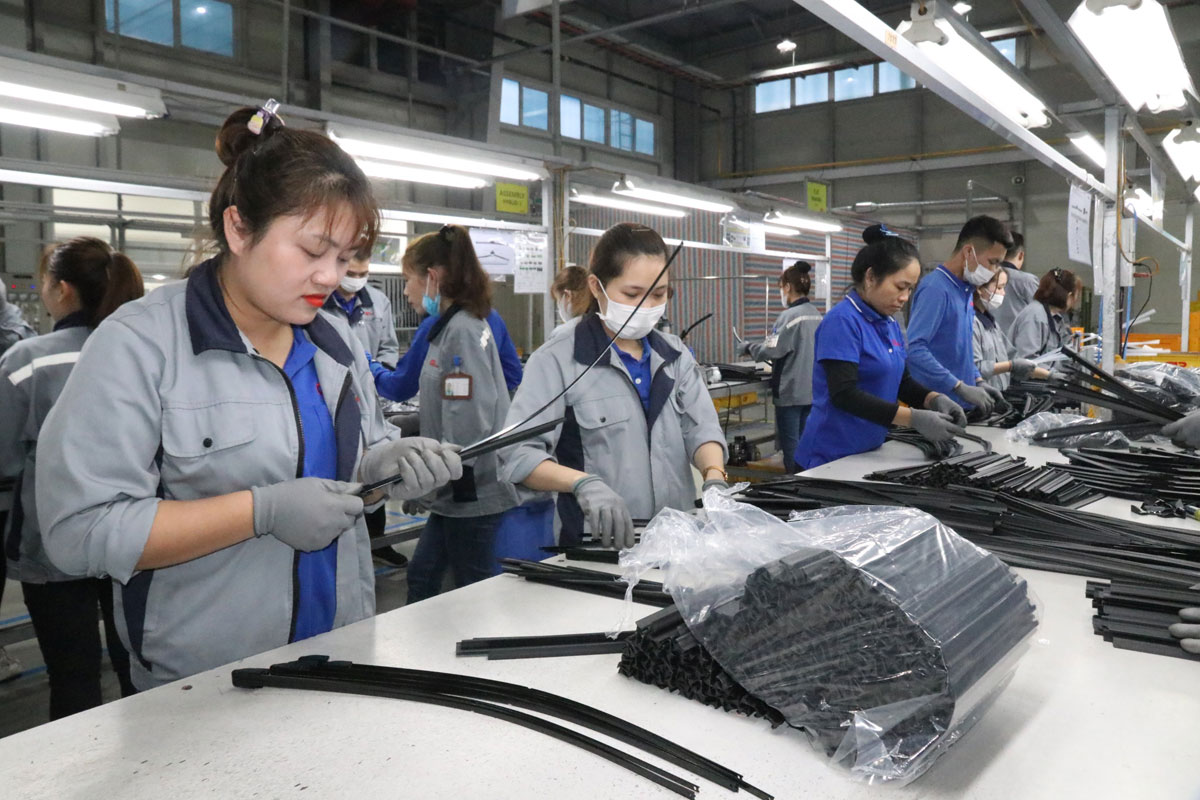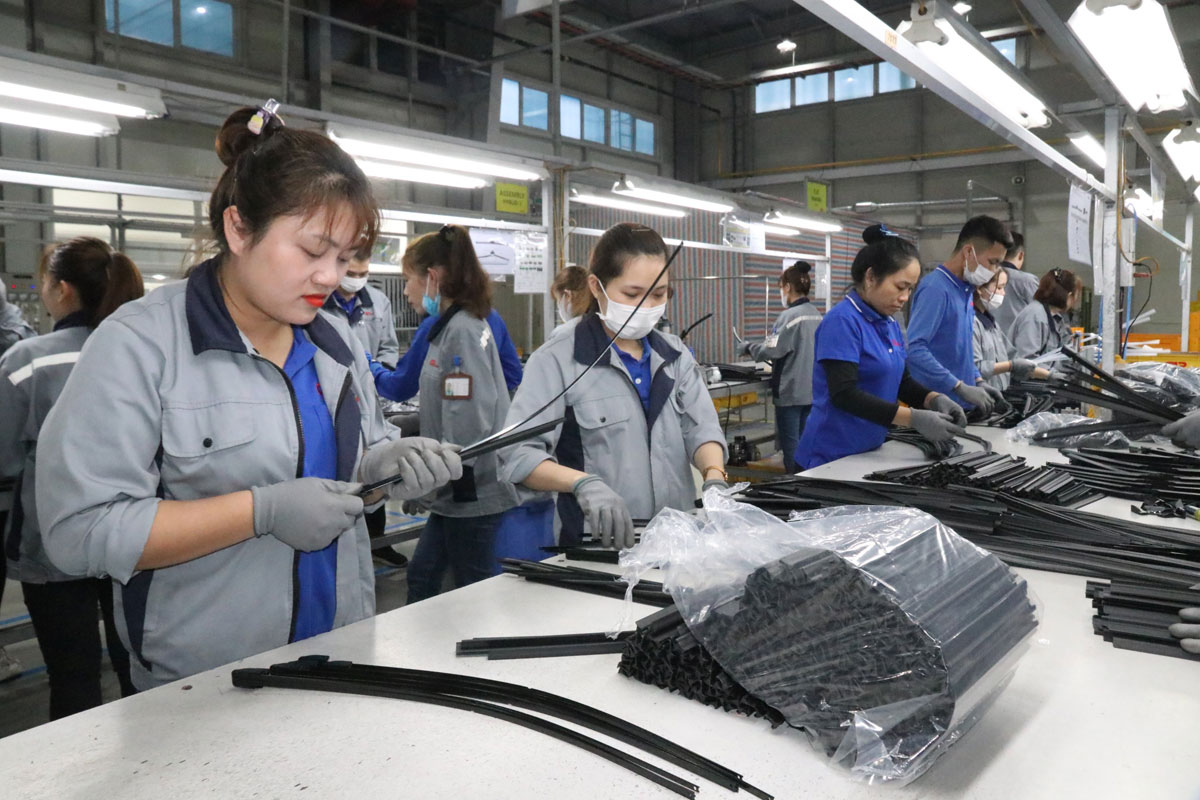
(HBO) – The management board of industrial parks in Bac Giang province took lead in terms of the District and Department Competitiveness Index (DDCI) last year, with 80.04 points, up more than 20 places from the 2021 ranking.
Wholly
foreign-invested CAP GLOBAL Co., Ltd. that invests in the Luong Son Industrial
Park has brought about stable income, jobs to many labourers
For the result, the board has taken various
solutions to utilise its strengths and deal with shortcomings and limitations
in implementing indicators, contributing to improving the local business
environment.
According to a report on the DCCI in Hoa Binh
province in 2022, among the eight indicators of the index, the board ranked
first in five and entered the top three for two others.
Le Quynh Chi, from Economica Vietnam, said local
departments and agencies, especially the board, made outstanding performance in
the indicators of public service and single window quality, unofficial
expenses, transparency, corporate support and market penetration.
She attributed the results to the units’ action
plans and programmes , as well as their attention to the quality of public
services, the personnel work and IT applications in administrative reform.
According to Phan Thi Thu Hang, head of the
board’s business management bureau, the board has proposed the provincial
People’s Committee publish all planning schemes of industrial parks on its
website, and regularlly provided updates on the province’s investment
attraction policy, and operations of the board and enterprises in industrial
zones.
To create a professional and friendly investment
environment, the board has also increased dialogues with enterprises, and
coordinated with departments and agencies in building an online public service
system connected with the national investment information system.
However, the board said, there are many
indicators that require coordination between departments and agencies such as
market penetration and business licence and support. Therefore, to raise the
provincial competitiveness index, the People’s Committee should instruct
relevant agencies to improve the capacity and speed of the public service
system./.
According to data from the Hoa Binh Provincial Party Committee, the industrial production index for the first six months of 2025 is estimated to have increased by 20% compared to the same period last year. This marks the highest year-on-year growth rate for this period since 2020.
In the first six months of 2025, Hoa Binh province’s export turnover was estimated at 1.145 billion USD, marking an 18.11% increase compared to the same period in 2024. Import turnover was estimated at $ 804 million, a 17.15% increase, which helped the province maintain a positive trade balance.
The lives of the ethnic minority farmers in Tan Lac district have gradually improved thanks to the new directions in agricultural production. This is a testament to the collective strength fostered through the professional associations and groups implemented by various levels of the district’s Farmers’ Union.
With the motto the "product quality comes first,” after nearly one year of establishment and operation, Muong village’s Clean Food Agricultural and Commercial Cooperative, located in Cau Hamlet, Hung Son Commune (Kim Boi district), has launched reputable, high-quality agricultural products to the market that are well-received by consumers. The products such as Muong village’s pork sausage, salt-cured chicken, and salt-cured pork hocks have gradually carved out a place in the market and they are on the path to obtaining the OCOP certification.
In the past, the phrase "bumper harvest, rock-bottom prices" was a familiar refrain for Vietnamese farmers engaged in fragmented, small-scale agriculture. But today, a new spirit is emerging across rural areas of Hoa Binh province - one of collaboration, organisation, and collective economic models that provide a stable foundation for production.
Maintaining growing area codes and packing facility codes in accordance with regulations is a mandatory requirement for agricultural products to be eligible for export. Recently, the Department of Agriculture and Environment of Hoa Binh province has intensified technical supervision of designated farming areas and packing facilities to safeguard the "green passport" that enables its products to access international markets.



